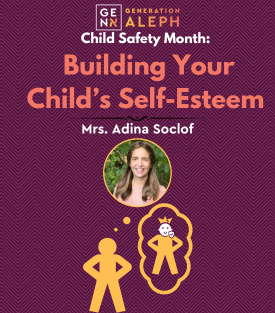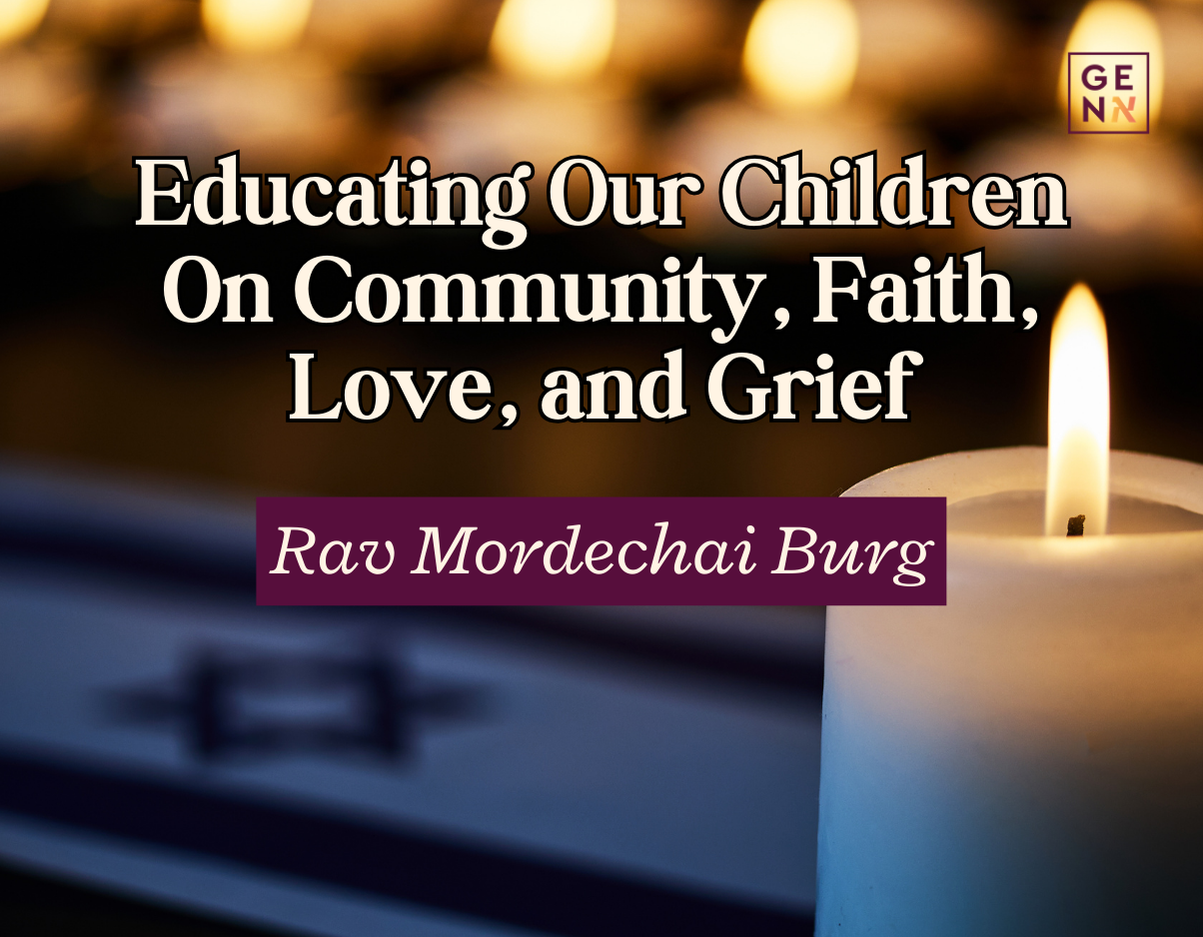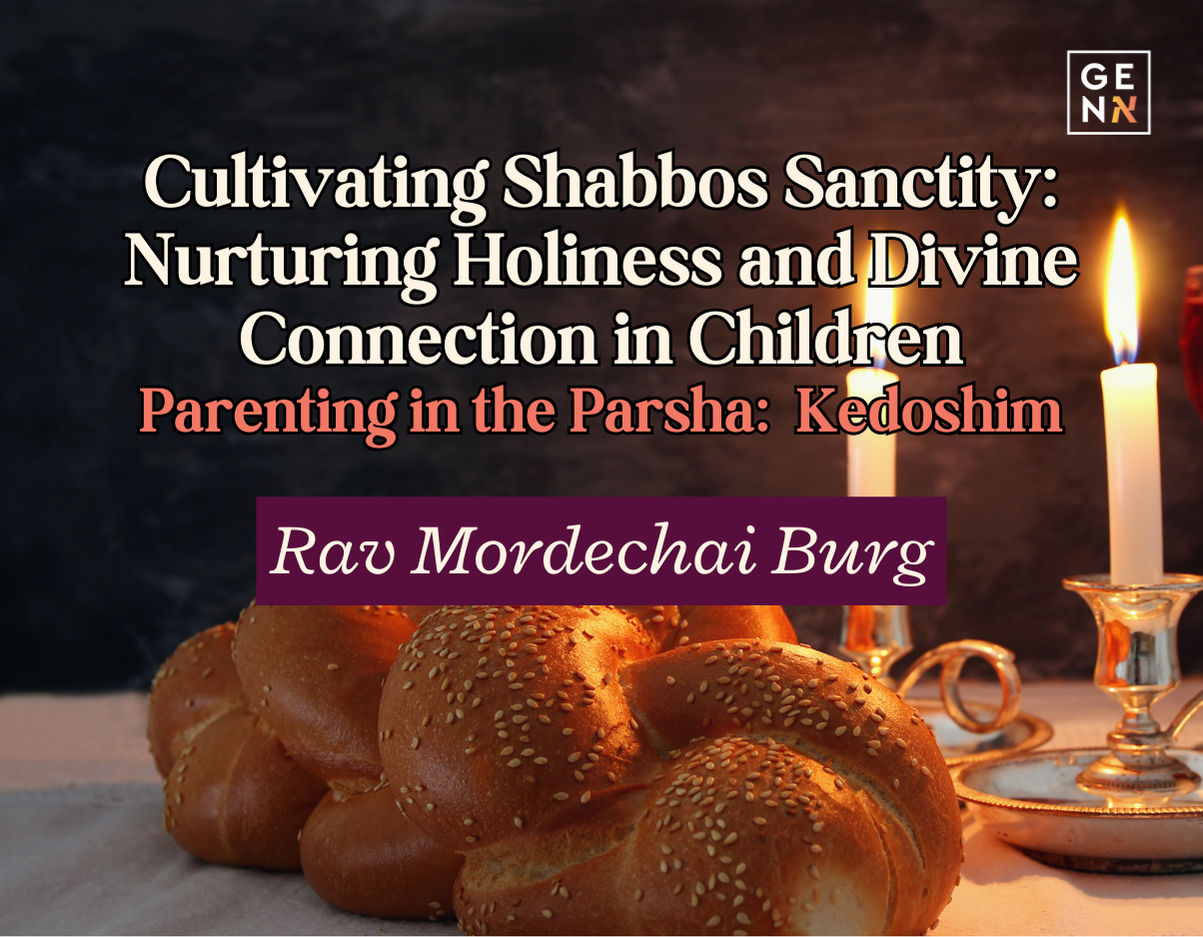וּבִמְלֹ֣את | יְמֵ֣י טָֽהֳרָ֗הּ לְבֵן֘ א֣וֹ לְבַת֒ תָּבִ֞יא כֶּ֤בֶשׂ בֶּן־שְׁנָתוֹ֙ לְעֹלָ֔ה וּבֶן־יוֹנָ֥ה אוֹ־תֹ֖ר לְחַטָּ֑את אֶל־פֶּ֥תַח אֹֽהֶל־מוֹעֵ֖ד אֶל־הַכֹּהֵֽן:
And when the days of her purification have been completed, whether for a son or for a daughter, she shall bring a sheep in its first year as a burnt offering, and a young dove or a turtle dove as a sin offering, to the entrance of the Tent of Meeting, to the kohen. (Vayikra 12:6)
Mazal Tov! A woman has given birth. If the baby is a boy the mother has seven impure days, followed by 33 pure days. If the child is a girl, the mother has 14 impure days followed by 66 pure days. At the end she brings two Korbanos in the Beis HaMikdash: A Korban Olah (optimally a year old sheep) and a Korban Chatas (a pigeon or a dove). The Korban Olah is brought as an expression of thanks for making it through the difficult childbirth, but what is the nature of the Korban Chatas? What sin has the new mother committed? Rav Shimon Bar Yochai (Niddah 31b) answers that in the pain of labor she made an oath never to engage in intercourse again with her husband so as to avoid experiencing this pain again. For violating her oath she must bring a Korban Chatas. Throughout the generations others have offered different various solutions to this problem. Rabbeinu Bachya connects childbirth to the sin of Adam and Chava. Sforno suggests that childbirth is a time of intense focus on the physical. The Korban Chatas reorients the new mother towards the spiritual world. Chief Rabbi Dr. Lord Jonathan Sacks z”l offers a novel and beautiful answer to this question. (The article that follows is at its core based on Rabbi Sack’s answer albeit with some of my own embellishments which I hope he would have approved of.)
The Gemara in Sanhedrin (38b) records a conversation between Hashem and the Malachim regarding the creation of man. First God created a group of Malachim and said let us make man in our image. The Malachim asked Hashem, what will the deeds of man be? Hashem showed them the nature of man to which the Malachim responded, man is not worth creating. Hashem outstretched his finger and destroyed the Malachim with fire. Hashem then created a second group of angels and again said let us make man in our image. Again they inquired about man’s deeds and again Hashem showed them human nature. The second group also felt that man should not be created and again Hashem destroyed them. Finally Hashem created a third group of angels. Hashem said, let us make in our image. They too inquired about the deeds of man and Hashem showed them human history. Knowing what happened to their predecessors, the third group of Malachim said, “Master of the Universe, the first two groups who spoke their mind before You, what did they accomplish? The entire world is Yours; whatever You wish to do in Your world, do.” Hashem then created Adam HaRishon.
Far from being “Rabbinic imagination”, Chazal offers us a fundamental insight into a perfect God’s relationship with an imperfect man. The Malachim looked at human history and saw that we would sin. As the Passuk in Koheles (7:20) says, כִּ֣י אָדָ֔ם אֵ֥ין צַדִּ֖יק בָּאָ֑רֶץ אֲשֶׁ֥ר יַעֲשֶׂה־טּ֖וֹב וְלֹ֥א יֶחֱטָֽא, For there is not one good man on earth who does what is best and doesn’t err. To the perfect Malach, the imperfect man was unworthy of creation. To Hashem the exact opposite is true. Our imperfections are not a bug but a feature. God did not create us despite our sins but because of them. We are created to build for Hashem a dwelling place in the world down below. Making our world a dwelling place for Hashem means inviting Him into the lowest aspects of our existence. We do Mitzvos with coarse physical objects. We call out to Him when we are suffering. When we sin, we do Teshuva. Human history is not only the story of man’s repeated imperfections creating a world of chaos, it is also the story of man’s repeated repentance in our attempt to find God within our imperfections. Teshuva preceded creation (Bereishis Rabbah 1:4) because Teshuva is not merely a response to sin but at the essence of sin is Teshuva. Our misdeeds are an opportunity to reveal Hashem in the world down below.
Dr. Brene Brown writes, “Shame is the birthplace of perfectionism.” Perfectionism is a protective part that we employ to avoid doing something that will make me feel unworthy of love and connection. We should not confuse perfectionism with striving for excellence or leading a growth oriented life. One can strive for excellence and make mistakes. One can lead a growth oriented life and use their misdeeds as an opportunity to learn. Perfectionists, by their very definition, cannot allow themselves to do wrong. They cannot fail. And as a result, they also cannot allow themselves to be seen. To avoid shame, they hide behind the armor of perfection, leading a very lonely life. No wonder that perfectionism is highly correlated with depression, anxiety and addiction. In Yiddisheit we strive for completion, not perfection. We place a higher value on being authentic and compassionate even when we have behaved in unbecoming ways and feel distant from Hashem. The growth oriented Jew embraces the awkward, messy, less than perfect state of being human because he knows that Hashem had no interest in the Malachim who demanded perfection. He wanted us.
Rabbi Sacks suggests that this is why a mother brings a Korban Chatas. Not for her own sin but for the sins the child will surely commit. In Rabbi Sacks’ words “a mother brings a sin offering in advance to atone, as it were, for any sin the child may commit while still a child, as if to say: “God, you knew humans would sin, yet still You created them and commanded us to bring new lives into the world. Therefore, please accept this sin offering in advance for any wrong my child may do.” Just as God created Teshuva before the creation of the world, a mother brings a Korban Chatas before her child ever has the chance to sin. This Korban has a dual impact, on the parents and on the child. It is an instruction to the parents on the type of home they are meant to build. Not a home that cultivates shame by demanding perfection but one that embraces kindness and compassion as we stumble through life imperfectly. In turn, a child that is raised in a home where his mother brought a Korban Chatas, understands that he is fundamentally forgivable. He is courageous in the face of new opportunities because he knows that failures and setbacks are part of a process. Armed with an abundance mentality he shows up to life ready to be seen, flaws and all. To such a child sin is a source of guilt not shame. Teshuva is a gift and an opportunity to reveal Hashem even in the lowest aspects of our world.
Without a Beis HaMikdash we no longer have a place to bring our Korban Chatas but the Chinuch message must somehow continue to be communicated. We are a religion that values observance and with rules and regulations comes failure and misdeeds. As parents we are obligated to thread the needle between setting high standards for our homes and allowing our children to be their imperfect selves as they discover the contours of their own being. It is not easy to create an environment where we balance accountability and compassion but that is what we are called upon to do. There can be no doubt that striking that balance begins with an attitude of Korban Chatas first. We exist within a world where our lowest moments are forgivable. Hashem knew that we would sin, it does not make us unlovable. What greater gift could there be for a child than growing up in a home where he knows that his parents have already brought for him a Korban Chatas. Until the age of adulthood, where he becomes accountable for his own actions, he is free to explore the world and learn its lessons unencumbered by the fear of being imperfect. No doubt that they will fall but how else will they learn to walk?
_________________
Rav Mordechai Burg is the Menahel of Mevaseret, Mashpia of NCSY Summer, Mashpia of Nitzotzos, author of Nitzotzos on Chumash and a senior Rebbe at Tomer Devorah and Bnot Torah Institute. His shiurim can be found on Nitzotzos.com.
Submit your questions
"*" indicates required fields











